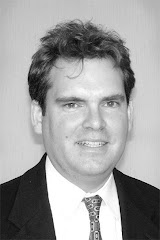Tuesday, February 05, 2013
How would Marco Rubio fare in Le Mars?
Will Iowa Republicans in 2013 accept from first-term U.S. Sen. Marco Rubio of Florida what they wouldn’t from war-hero, political veteran John McCain in 2008?
One could be speaking for the other on immigration, allowing, of course, for five years difference, and taking into account the Republican Party’s suicidal approach to modern demographics.
Rubio, the GOP wunderkind who pulled Gov. Terry Branstad out into the rain for a Mitt Romney campaign event last August (yes, it did rain in August) and helped Branstad celebrate a birthday in person recently, is making statements about immigration reform that helped sink McCain’s White House prospects in Iowa.
I talked to Branstad on the west side of the Statehouse after Rubio’s speech in support of Romney.
Branstad told the Daily Times Herald and other media after the event that Rubio deserved to be on Romney’s vice presidential short list. In fact, it seemed clear to me that Branstad would have preferred to see Rubio topping the ticket. Hence the birthday cake a few months later.
“Marco Rubio, I think, tells it very much like it is,” Branstad said of the senator with Cuban heritage. “He’s somebody that has come up the hard way and has shown great leadership. He’s now one of the bright young senators from the state of Florida, an important and key state so he’s certainly one I’d like to see considered.”\
Branstad added, “It’s the American dream. He’s lived it.”
We’ll see if Republicans in Le Mars feel the same way today.
When asked by The New York Times about the estimated 11 million illegal immigrants in the country, Rubio said, “We have to understand these folks are here to stay.” He said most had not committed serious crimes, and called for a path-to-citizenship plan that involves fines and passing English tests, what Congressman Steve King, R-Kiron, and other conservatives have called “amnesty” based on the fact the undocumented residents’ mere presence in the United States violates rule of law and sovereignty.
“Ultimately it’s not good for our country to have people permanently trapped in that status where they can’t become citizens,” Rubio told The Times.
So lets go back to Le Mars in the heat of the 2008 Iowa Republican presidential caucus battle.
McCain stood in the center of about 120 people in that northwest Iowa city early one Saturday and conducted an impromptu debate with audience members who were critical of McCain’s approach. He was like Reggie Miller in New York City. The house stood against McCain. You could feel support evaporate with each syllable. You had to admire his courage, but the episode also was hard to watch. You felt for McCain. He was killing himself politically and had to know it.
McCain said the notion of arresting up to 12 million illegal immigrants and busing them to Central America and Mexico is just not workable. “How would you do it? Why would you do it?” he asked.
“I don’t know how you round up 12 million people,” McCain said.
The senator said accepting the illegal immigration status quo amounts to an endorsement of “amnesty.”
He supported a proposal that would focus more resources on the southern border and allow a long, legal path to citizenship for those illegal immigrants who pay back taxes, accept fines and stay out of trouble with law enforcement. In other words, nearly word for word what Rubio is proposing today with the support of conservative boy wonder Paul Ryan, the Wisconsin congressman and Romney running mate in November.
The reality, McCain suggested in Le Mars, is that the nation’s economy depends on immigrant labor.
“There are some jobs in America that are not being done by Americans, and we know it,” McCain said.
He added, “I promise you, I have thought this thing through for years.”
One member of the audience challenged McCain, suggesting that in France authorities had sought to deport illegals.
McCain said that in France ethnic tensions and immigration issues have exploded into violent confrontations, with multiple car burnings, in areas were immigrants have been segregated.
“I don’t want that to happen in the United States,” McCain said.
He added. “The next time you make your argument I wouldn’t use France.”
We’ll see if Branstad cuts birthday cake with Rubio this year. Or can King, who has made opposition to amnesty for illegal immigrants into something of a national political calling card, even appear in the same room with the Florida senator?
I’d like to see all three of them in Le Mars.
With McCain.
Subscribe to:
Post Comments (Atom)






No comments:
Post a Comment